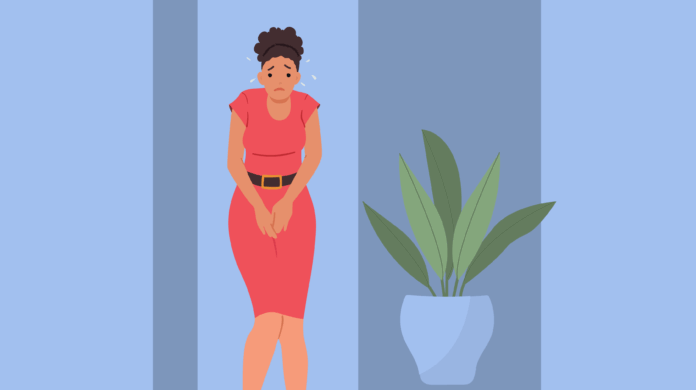Do you find yourself getting up in the middle of the night multiple times to go to the bathroom? Waking up frequently during the night to pee can be more than just annoying. It can disrupt your quality of sleep, which accumulates into prolonged fatigue during waking hours, and may also be a symptom of a deeper underlying condition.
The term for frequent nighttime urination is “Nocturia,” or nocturnal urinary frequency. Excessive urination during the daytime is known as frequent urination, while nocturia refers specifically to using the bathroom frequently at night. Polyuria, which refers to excessive urine volume, is associated with nocturia.
While nocturia rates rise with age (especially after the age of 60) and can affect all genders, the people under 50 most likely to be affected are women. One in three adults over the age of 30 makes a minimum of two bathroom trips every night, and 70% of this affected group report being bothered by this. In one cross-sectional study of adult U.S. women, about 29% reported significant nocturia.
What Causes Nocturia?
Anatomical differences between the sexes mean there may be different causes of nocturia in men and women. For example, women may be experiencing nocturia due to pelvic organ prolapse after childbirth, while men may be suffering from an enlarged prostate. Below are some common causes of nocturia in women:
- High blood sugar levels – A high blood sugar level results in sugar spilling into the urine and forcing you to pee more
- Kidney disease – Certain kidney conditions cause the kidneys to produce more urine
- High blood calcium level – an imbalance of calcium can get into urine and pull water from the body
- Urinary tract infection – Bacteria that gets into your urinary tract can inflame the bladder and force frequent urination
- Diabetes insipidus – Too little antidiuretic hormone means your body is unable to hold on to water
- Diuretics – Certain medications as well as “water pills” may cause the body to pass more water
- Edema – Water retention in the legs may move to the kidneys and then passed out as urine at night
- Drinking too many fluids before you go to bed – Overhydration can result in frequent nighttime urination
- Drinking alcohol and caffeinated beverages – These substances act as diuretics, forcing you to pee more at night
Why Does Sleep Apnea Cause Nocturia?
Obstructive Sleep Apnea is a condition correlated with overactive bladder symptoms because they both disrupt sleep patterns and may exacerbate each other. Sleep apnea is a sleep disorder defined by consistent breathing interruptions during sleep, punctuated by significant snoring and gasping for air.
Such pauses in breathing typically last from seconds to minutes, recur frequently during one sleep session and result in low oxygen levels and hindered sleep quality. 50% of sleep apnea sufferers also have nocturia, due to the fact that sleep apnea impacts a hormone called atrial natriuretic peptide (ANP), causing the body to produce higher levels of urine during sleep.
Unfortunately, the combination of sleep apnea and nocturia can severely disrupt someone’s ability to get the deep REM sleep necessary for optimal brain health and negatively impact their overall health and function. Below are some causes of sleep apnea to consider. If you think you suffer from sleep apnea, consult with your doctor for treatment options.
Common causes of sleep apnea:
- Age
- Obesity
- Gender (men are more likely to develop sleep apnea, but it may also be underdiagnosed in women)
- Smoking
- Alcohol
- Medical conditions such as diabetes, hypertension, and congestive heart failure
How To Treat Nocturia
Rest is important. If nocturia is (literally) causing you to lose sleep and impacting your quality of life, you should consult with your doctor to rule out any possible underlying conditions that may require further treatment, as well as to chart out a course of action that reduces your nighttime bathroom trips. They may run diagnostic tests for conditions like diabetes and kidney disease and also prescribe lifestyle changes or medication.
How To Treat Nocturia Naturally
When you visit your healthcare provider about nocturia, they may start by recommending certain lifestyle changes that are low-risk and can significantly reduce how many times you get up to go to the bathroom at night. Some lifestyle changes for nocturia that you can implement include:
- Taking afternoon naps – Your bloodstream absorbs liquid while napping, so you’ll have to use the bathroom after a nap, potentially reducing your trips to the bathroom in the nighttime
- Reducing the amount of fluids you drink in the evening
- Reducing or eliminating diuretic substances like alcohol and caffeine
- Taking diuretic medication in the morning or at least six hours prior to bed to flush your system out
- Elevating your legs when sitting around to assist with fluid distribution throughout the body
- Wearing compression stocks to assist with fluid distribution in the case of edema
- Pelvic floor physical therapy to strengthen your pelvic floor muscles
- For those who feel like their bladder doesn’t empty fully, the doctor may recommend practicing a double-void technique before bedtime.
How To Treat Nocturia Medically
You should always consult with your healthcare provider about what medications may be causing your nocturia so that they can plan accordingly. In certain circumstances, your medical provider may prescribe medications to alleviate your symptoms so you can finally get a proper night’s rest. Below are some common medications prescribed to treat nocturia:
- Diuretics – Medications like furosemide (Lasix®) and bumetanide (Bumex®) may help regulate the amount of urine you produce
- Anticholinergics – These medications are used to treat overactive bladder, which is often linked to nocturia. Up to 40% of people find that anticholinergics alleviates their symptoms.
- Desmopressin (DDAVP®) – This medication helps your kidneys produce less urine, reducing the overall frequency of day and nighttime urination.

